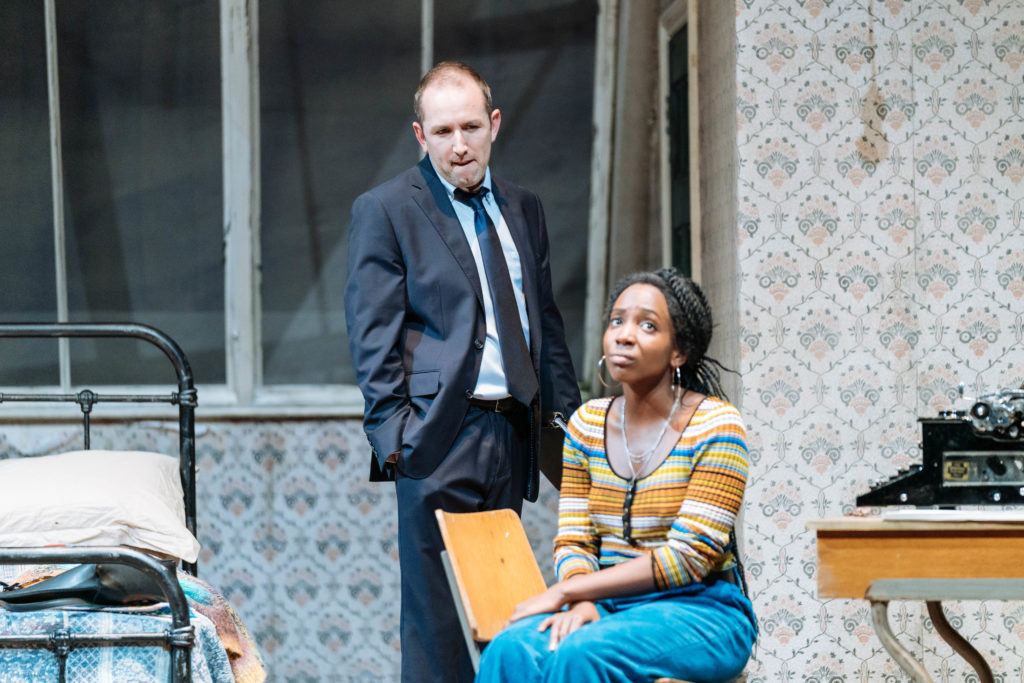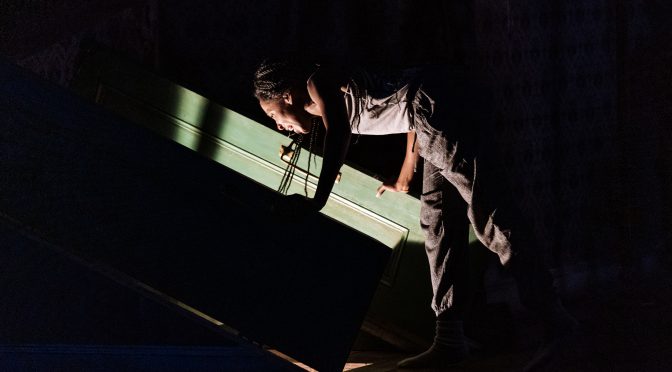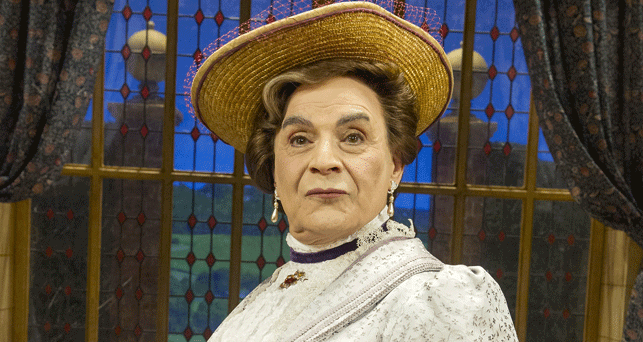As one of the original so-called ‘in-yer-face’ dramatists, a loose group known for their aggressive writing, horror seems an appropriate genre for Anthony Neilson to explore. Here, comedy, crime and suspense are all added to a Gothic tale that is also about the theatre; making a crazy mix that plays with plays and travels from shock to schlock. One part is genuinely sickening, which is an achievement… of sorts.
Inspiration comes from the short story by Edgar Allan Poe, helpfully reprinted in the programme, about a senseless murder followed by a guilt-ridden confession. The update is to have a playwright rather than a madman, and a landlady with a large prosthetic eye that’s genuinely freaky.
Since we know the plot, Neilson’s direction deserves full credit for adding tension: maybe he’s an ‘edge-of-yer-seat’ writer now? The story’s claustrophobic setting is conveyed by Francis O’Connor’s design and the narrator’s acute, indeed hallucinatory, sense of hearing has led to strong work from composer and sound designer Nick Powell: in this story of the eye, the ears have it.
For many, success will come with the show’s comedy, even if it is the quantity rather than quality of jokes that impresses. The Tell-Tale Heart is tasteless, there’s a lot of – literally – toilet humour. And crudity, of course, although a joke about oral sex with a hipster is inspired. The comedy is always well delivered. Tamara Lawrance and Imogen Doel are excellent as, respectively, the contemporary playwright Celeste and her oddball landlady Nora. Meanwhile, David Carlyle is brilliant as two incarnations of a police man; one in the version of events that’s been turned into a play.

So, clearly, the play is self-consciously clever, such as getting us to laugh at physical deformity, then reminding us that’s not very nice. And depicting Celeste, harshly, as an easily recognisable virtue warrior who turns out to be a psychopath. Back to that programme, and an excellent essay by Greg Buzwell, who proposes that the gothic genre “mutates” to show us contemporary fears. What might Neilson be revealing? Some people are worried that artists should be exemplary people. It’s a current debate, but a little dull. Making jokes about how “writers writing” is boring doesn’t make the play’s focus on just that any more interesting. On a broader level, are we all worried about not being quite so civilised as we would wish – or is demanded of us?
Raising these questions seems a small payoff for the elaborate games played here. All in all, there’s a little too much genre being juggled. And final twists in the tale (there’s more than one) prove a tad lame. It’s a shame, since The Tell-Tale Heart, beneath trying too hard, is pumping good fun.
Until 8 January 2019
Photos by Manuel Harlan



